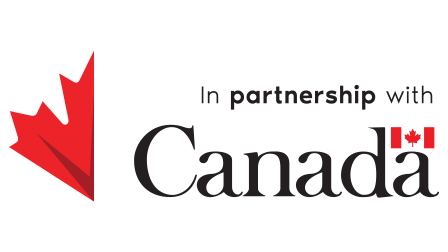Natur'ELLES
The Natur'ELLES project endeavors to enhance the resilience of women and their communities in the Sine Saloum and Casamance deltas vulnerable to climate change. It will advocate for the adoption of nature-based solutions aimed at restoring and conserving mangrove coastal biodiversity among local populations.
Through a community-based approach, Natur'ELLES aims to bolster the critical environmental services provided by mangroves, particularly for the benefit of women, such as enhancing fisheries productivity and mitigating coastal erosion, flooding, and salinization.
Supported by the International Union for Conservation of Nature (IUCN), the project seeks to empower stakeholders in Marine Protected Areas (MPAs) and Indigenous Community Heritage Areas and territories (ICHAs) to spearhead conservation and governance strategies, placing local communities at the forefront.
Activities will encompass restoration campaigns, awareness-raising, and the promotion of climate-smart, biodiversity-respecting energy and production alternatives, with a focus on sustainable fisheries and microenterprise federations to provide tailored products and services, enhancing income crucial for climate change adaptation and biodiversity conservation.
Additionally, the project aims to establish a pilot mechanism for payment for environmental services (PES) geared towards women and their communities. Based on an economic assessment of the value of blue carbon sinks using IISD's Sustainable Asset Valuation (SAVi) methodology and targeting the blue carbon market, this model will be widely disseminated to demonstrate the holistic economic value of the ecosystem to the community.
Natur'ELLES will directly benefit 8,000 people, including at least 6,000 women and young women vulnerable to climate change, as well as their communities in the Sine Saloum and Upper Casamance deltas (including more than 85,000 indirect beneficiaries across 113 villages, who will benefit from improved fishery resources, food security and environmental services for climate risk mitigation).
SOCODEVI will lead the project, with partners including the International Institute for Sustainable Development, IUCN and Ostrom Climate Solutions.
Project team

Benjamin Simmons
Director, Sustainable Infrastructure

David Uzsoki
Lead, Sustainable Finance

Liesbeth Casier
Lead, Public Procurement and Sustainable Infrastructure and Coordinator of the NBI Global Resource Centre

Edoardo Carlucci
Policy Advisor

Henri Contor
System Dynamics Analyst

Becca Challis
Communications Officer

Ousmane Sambou
Communications Officer

Matthew TenBruggencate
Communications Manager

Hajra Atiq
Project Manager
You might also be interested in
NATALIE - Nature-based Solutions to Enhance Resilience to Climate Change
NATALIE focuses on advancing ecosystem-based adaptation in Europe, combined with climate-resilient development pathways, developing impactful nature-based solutions (NbS) to accelerate and mainstream the adoption of NbS for climate change resilience.
FERMA: Femmes Résilientes au Moyen-Atlas
Using an integrated approach to forest ecosystem management, the FERMA project works with twenty-five women's cooperatives in the Khénifra National Park region of Morocco, supporting their resilience in the face of climate change.
Using Systemic Approaches and Simulation to Support Transformation Toward Sustainable Mobility
This project aims to drive investments under post-pandemic recovery plans and development strategies towards transformation in the mobility and transport sector.
News & Analysis on Sustainable Infrastructure
The IISD Sustainable Recovery 2020 campaign advocated that the unprecedented global wave of public spending that occurred in response to the COVID-19 pandemic should be allocated exclusively to economic actors and projects that minimize adverse impacts on nature, account for climate risks, stimulate green innovation, and improve social cohesion.

